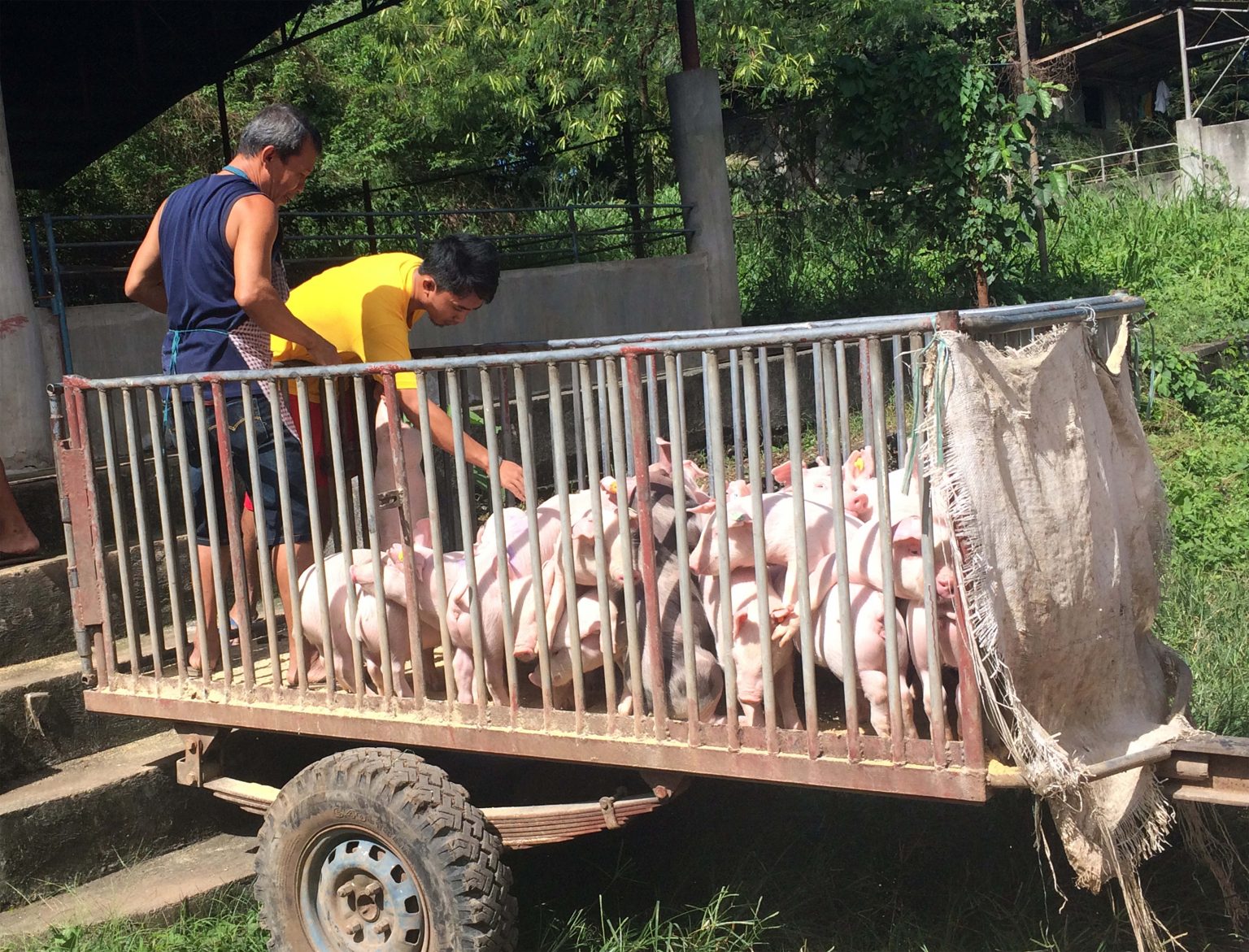
The Duterte administration’s twin hog repopulation and “Bantay ASF sa Barangay” (BABay ASF) program — led by the Department of Agriculture (DA) in partnership with the local government units (LGUs), hog raisers’ groups, and the private sector — is gradually boosting the local swine industry towards recovery.
“The incidence of ASF is waning, as blood samples of suspected hogs that tested positive are down to 147, as of August 2021,” said Agriculture Secretary William Dar, adding that “ASF incidence is down to only 24 barangays, in 16 cities and municipalities.”
Since mid-2019, the ASF virus has affected hog farms in 2,981 barangays, in 579 cities and municipalities, mostly in Luzon, according to the DA’s Bureau of Animal Industry (BAI). The incidence peaked in August 2020, with 1,773 positive samples, said BAI Director Reildrin Morales.
“To date, 484 cities and municipalities have no reported ASF cases for at least three months, of which 74 have no reported cases for three to six months, and 410 have no cases for more than six months,” Morales added.
For his part, DA Undersecretary for Livestock Dr. William Medrano said “due to stricter surveillance and monitoring efforts, we are gradually winning the fight against ASF.” These include setting up of biosecurity measures that both commercial and backyard raisers must employ.
“As a result, we have greatly reduced the incidence of ASF — the outcome of our strong partnerships with the LGUs, hog raisers, private sector, veterinary groups, and the academe,” added Medrano.
“Another bright spot is the current testing of a vaccine against ASF in ten commercial hog farms in Luzon, and we will announce the initial results by the end of August,” Secretary Dar said.
“All the more, we will strongly implement the “BABay ASF” program, in tandem with the hog repopulation, which is also called Integrated National Swine Production Initiatives for Recovery and Expansion (INSPIRE),” he added.
For her part, DA National Livestock Program Director Dr. Ruth Miclat Sonaco said INSPIRE features three components, with an initial funding of P872 million (M), namely: calibrated repopulation, worth P400 million; establishment of multiplier farms, P200 million; and hog insurance premium subsidy, P272 million.
In addition, the DA through its Agricultural Credit Policy Council (ACPC) has initially set aside P500 M for lending to backyard raisers and micro and small enterprises (MSEs) under its Agri-Negosyo (ANYO) loan program. As of July 30, 2021, the ACPC has lent P119.5 M to 1,274 small hog farmers and MSEs.
Secretary Dar said ACPC will infuse an additional P300 M for lending to hog raisers in ASF-free areas or “green zones” to support the Duterte administration’s hog repopulation program.
Further, the DA-ACPC credit program for the swine industry is greatly boosted by the Land Bank of the Philippines (LandBank) that opened a “Special Window and Interim Support to Nurture Hog Enterprises” or SWINE lending program worth P30 billion (B).
For its part, the Development Bank of the Philippines (DBP) allotted P12 B for its “Swine Rehabilitation, Repopulation and Recovery” or Swine R3 credit program.
As of June 30, 2021, LandBank said it has approved P295.8-M worth of SWINE loans involving eight borrowers, and currently processing 17 applicants, with a total project cost of P3.774 B.
For its part, the DBP as of July 31, 2021, has approved under its “Swine R3” credit program P300 M, and evaluating P3.6-B worth of “Swine R3” projects of 43 borrowers.
Secretary Dar also thanked major agribusiness firms for their continued partnership to revive the country’s swine industry. These include the Univet Nutrition and Animal Healthcare Company (UNAHCO) and the Charoen Pokphand Foods Philippines, Corp. (CP Foods).
In particular, CP Foods has committed to produce an additional 600,000 finishers next year, comprising one-fifth of the total 3-M decrease in hog population since 2019. The company also plans to buy at least 300,000 metric tons (MT) of yellow corn from farmers’ groups for its feed mill business.
From 2021 to 2023, the DA targets to produce 440,563 breeders and 10.5 million finishers, said Dr. Sonaco. This will benefit 115,800 hog farmers, and provide insurance coverage for 15.6 million finishers.
By 2023, the DA in partnership with the LGUs also aims to declare 90 percent of previously affected barangays as ASF-free, and thus released from quarantine. This will be pursued in tandem with the sentinel program, along with the enhancement of production and biosecurity measures in ASF green zones, said Sonaco, who also heads the DA-International Training Center for Pig Husbandry (ITCPH), in Lipa City, Batangas.
Secretary Dar said the DA will receive an additional P50 million from the Quick Response Fund (QRF), as approved by the Department of Budget and Management (DBM), for the DA’s sentinel program.
Sonaco said 8,000 hog farmers in eight regions will initially benefit from the sentinel program, with each receiving a package of three to five piglets, feeds, and veterinary drugs and biologics. They will also get technical assistance from their respective LGUs. Their respective areas will be released from quarantine when no ASF incidence is detected in 40 days, Sonaco added.
The DA is also establishing swine multiplier farms in several areas at: ITCPH swine nucleus and techno-demo farm in Lipa City; LGU San Teodoro in Oriental Mindoro; Zamboanga City Hog and Poultry Raisers’ Association; and Sorosoro Ibaba Development Cooperative; other partner-LGUs; state universities and colleges (SUCs); and farmers’ cooperatives and associations (FCAs). ### (DA StratComms)














